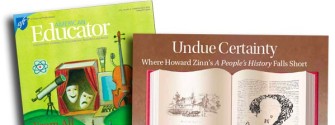 In December of 2012, the American Federation of Teachers (AFT) published “Undue Certainty: Where Howard Zinn’s A People’s History Falls Short” by Sam Wineburg. The article was full of distortions of Zinn’s A People’s History of the United States and went so far as to say that Zinn’s scholarship “invites a slide into intellectual fascism.”
In December of 2012, the American Federation of Teachers (AFT) published “Undue Certainty: Where Howard Zinn’s A People’s History Falls Short” by Sam Wineburg. The article was full of distortions of Zinn’s A People’s History of the United States and went so far as to say that Zinn’s scholarship “invites a slide into intellectual fascism.”
Not one teacher nor student was quoted in Wineburg’s article. When critical letters to the editor and articles were submitted, the AFT refused to publish them.
The only place AFT members were allowed to respond was on Facebook. There, outraged members left dozens of comments questioning the accuracy and purpose of Wineburg’s article and adding their own counter narrative about the value and impact of A People’s History in their classrooms.
In January of 2014, on the fourth anniversary of Zinn’s death, some educators campaigned to have their union finally allow a response to the Wineburg attack. AFT member Lois Weiner wrote, “I hope you agree with me that AFT should welcome a diversity of perspectives on pedagogical issues, including how best to teach history.” The educator activism had an impact. Although the AFT continued to refuse to publish a full article, they offered to include a few letters to the editor in the spring 2014 edition of the American Educator, including one from the Zinn Education Project. We were allowed 150 words. Here it is:
In its Winter 2012–13 issue, American Educator published Sam Wineburg’s article “Undue Certainty: Where Howard Zinn’s A People’s History Falls Short,” and until now has not printed a formal response. We at the Zinn Education Project (www.zinnedproject.org) encourage you to read two articles American Educator chose not to publish: (1) “When Assessing Zinn, Listen to the Voices of Teachers and Students” (historynewsnetwork.org/article/149974) by Robert Cohen, with insights from teachers and students, voices absent from Wineburg’s article, and (2) “Bashing Howard Zinn: A Critical Look at One of the Critics” (www.bit.ly/1dYJp2W) by Alison Kysia, a careful comparison of Wineburg’s representation of A People’s History to the original text, revealing many distortions. Also, please see comments by AFT members on the AFT’s Facebook page in response to the initial posting of Wineburg’s article.
—Deborah Menkart and Bill Bigelow
Codirectors, Zinn Education Project
Washington, DC
We accepted the AFT’s belated offer to contribute a letter to the American Educator in response to Sam Wineburg’s article. However, we remain dismayed that the AFT published such a distortion in the first place, and then refused to publish a full critique, even though these were submitted. We expect more from our teachers’ unions.
At a moment when the corporate education agenda threatens the very existence of public education, the American Federation of Teachers should be doing everything it can to promote history teaching that features the accomplishments of social movements and calls into question systems of exploitation. These twin objectives were at the core of Howard Zinn’s scholarship. The American Federation of Teachers owes it to its members to embrace, not discredit, this approach to the past.

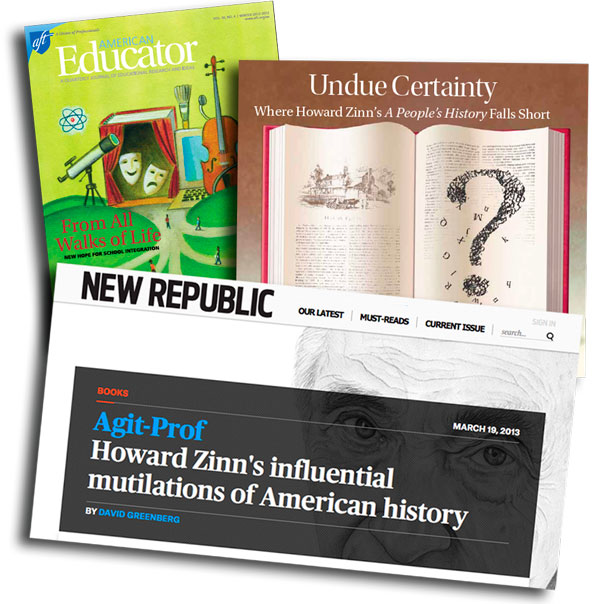
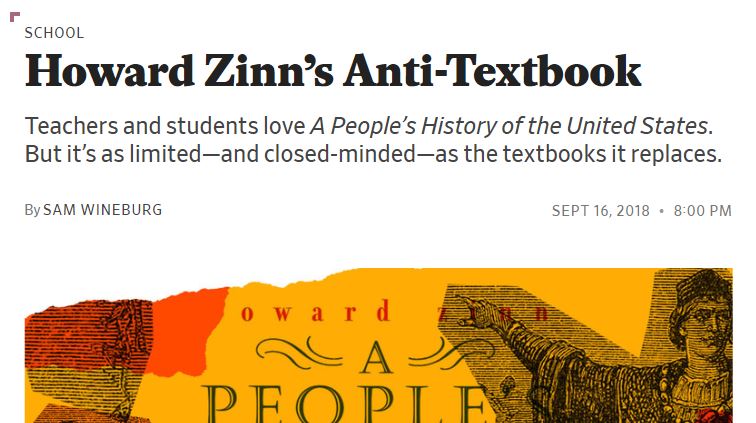
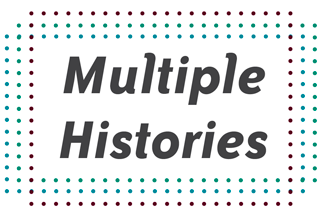

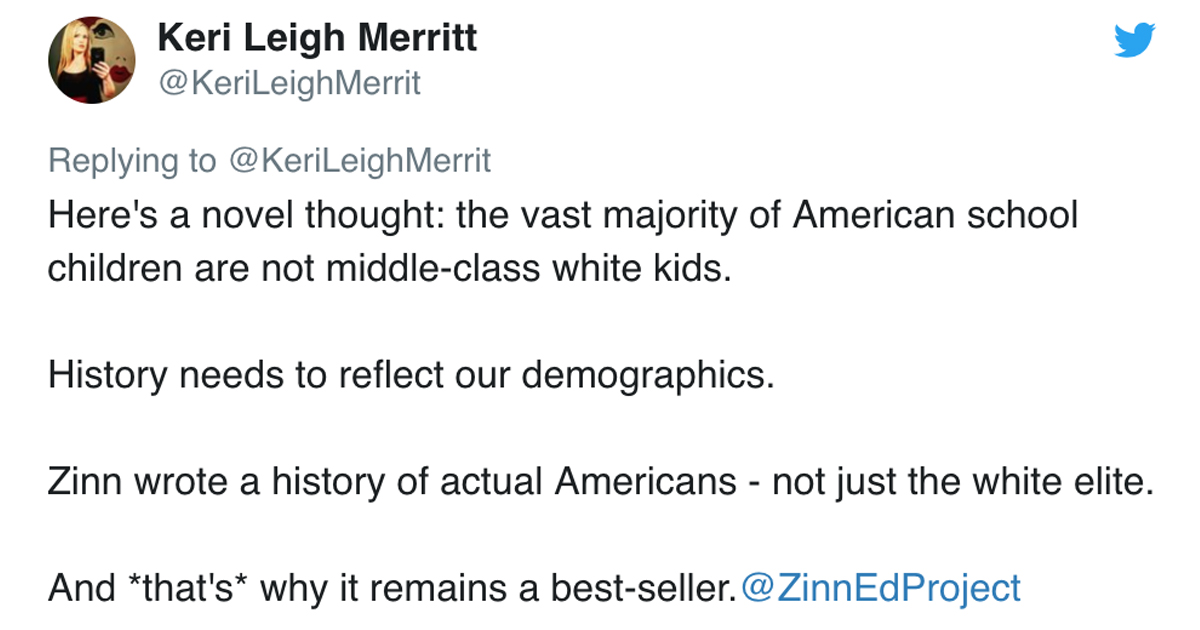
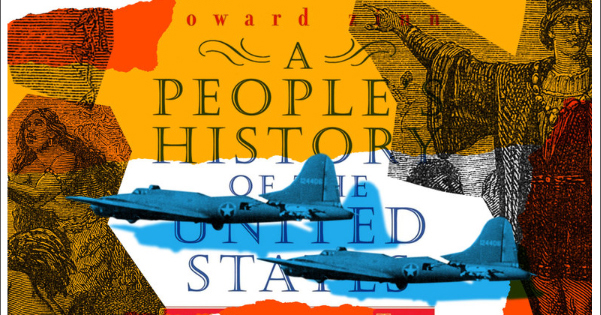





Teaching A People’s History Rocks!
The article is kind of like “Waiting for Superman.” The film talked about what teachers were doing wrong, but didn’t include the voice of one teacher. Makes me wonder if the AFT is really supporting teachers.
Excellent push-back! Thank you many times over!!
AFT’s position is VERY disappointing — I wonder what their rationale was. History is written by the victors as they should know, being part of the labor movement. It takes a lot of research to figure out what was going on for the losers.
Thank you for this! As I point out in my new book Hoosier School Heist: How Corporations and Theocrats Stole Democracy from Public Education, former governor Mitch Daniels used Wineburg to try to justify his attempts to ban Howard Zinn from being taught to Indiana teachers. In fact, while using Wineburg, Daniels quoted from another Zinn critic, lifting entire words from the critic’s original text without quotations or a citation, or even mentioning the critic’s name.
Truly dismayed at the AFT publication. Every article by Zinn Education Project I have read, and I’ve read dozens, was exceptionally well researched and documented. Do not publicize or spread the distorted articles.
From a retired high school teacher.
Amen.
Shame on the AFT.
The history I learned in primary, secondary and post-secondary educational settings was sorely biased, misinformed, and missing huge parts of what actually occurred from various aspects and perspectives in American History. I found it sorely lacking, filled with fallacies and a disservice to the educational system and all it was supposed to serve. Certainly, no one book, or perspective is perfect, however, I find that A People’s History of the United States certainly covers much more of what the real history of these states was and is. Any development, be it personal, professional, or social, or organizational, is frought with perils, struggles and difficulties, mistakes and problems, obstacles and pitfalls. This history brings all of the people’s struggles, difficulties and perils to light, we are not misguided by some glowing spot light only on American triumphs and how awesome our country is, when indeed in reality we are not. We are no better than any other nation that has faced its challenges to evolve.
I find it unfortunate whenever a spirited, principled discussion of differences in perspective, particularly in matters of pedagogy, are derailed or suppressed. I’m disappointed in the AFT, though not surprised terribly. Its measured if not pedantic approach to many learning and teaching opportunities over the years explains why it has never had my support.
Of course, I’m a fan and advocate of Zinn’s various ‘History’ portals. The fact that the voices of the disenfranchised, downtrodden, and dispossessed enjoy traction via Zinn is more than a simple offset. Instead, it breathes life into the study of history. I recall my soliloquy from a book week play from my fifth grade experience at Grant Elementary School, Oakland, California, under the phenomenal Ms. Hall (around 1960):
I’m Mr. History,
As good as a mystery
if you read me all the way through.
So don’t let me stay upon a shelf;
I can do a great deal for you.
History is exciting; it tells a thousand stories.
There’s romance and adventure; the past and all its glories.
I prefer that we get Zinn off the shelves and into the classrooms. Perhaps the AFT should follow suit and, for once, get in front of the charge to instructional efficacy.
George Orwell predicted this !!!!